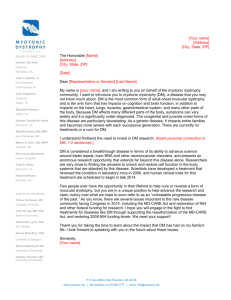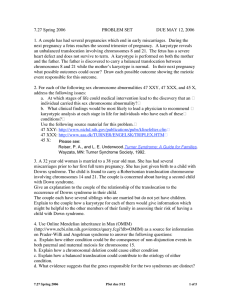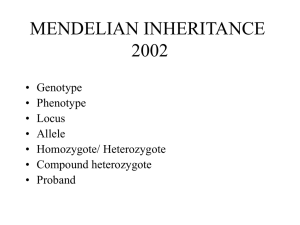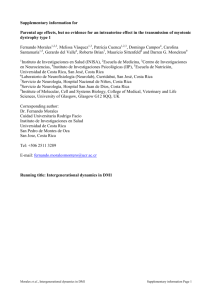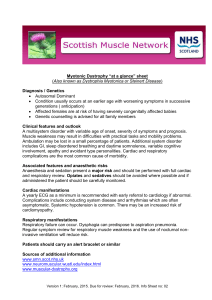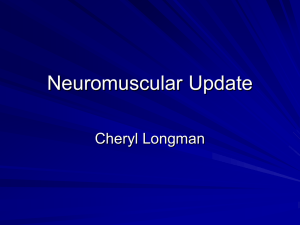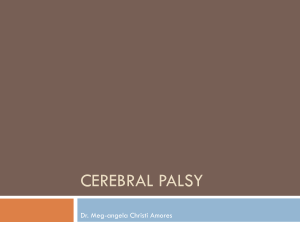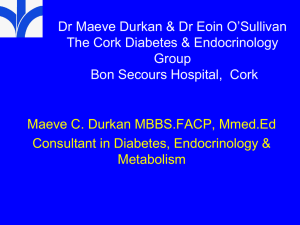Myotonic Syndromes Advanced Evaluation
advertisement
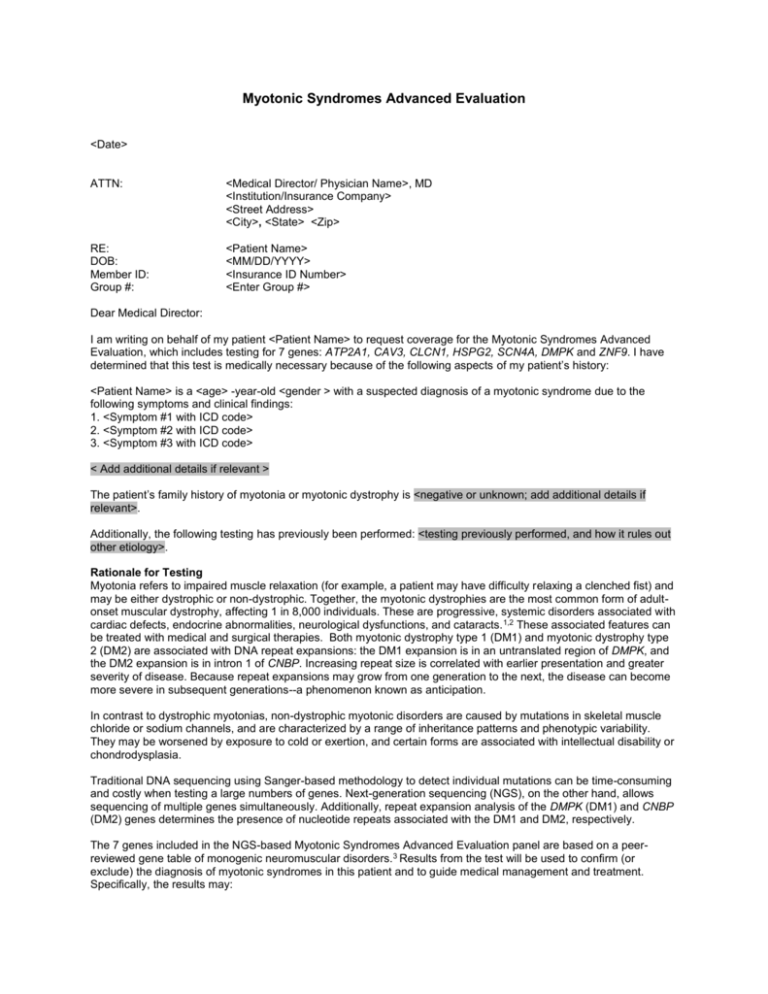
Myotonic Syndromes Advanced Evaluation <Date> ATTN: <Medical Director/ Physician Name>, MD <Institution/Insurance Company> <Street Address> <City>, <State> <Zip> RE: DOB: Member ID: Group #: <Patient Name> <MM/DD/YYYY> <Insurance ID Number> <Enter Group #> Dear Medical Director: I am writing on behalf of my patient <Patient Name> to request coverage for the Myotonic Syndromes Advanced Evaluation, which includes testing for 7 genes: ATP2A1, CAV3, CLCN1, HSPG2, SCN4A, DMPK and ZNF9. I have determined that this test is medically necessary because of the following aspects of my patient’s history: <Patient Name> is a <age> -year-old <gender > with a suspected diagnosis of a myotonic syndrome due to the following symptoms and clinical findings: 1. <Symptom #1 with ICD code> 2. <Symptom #2 with ICD code> 3. <Symptom #3 with ICD code> < Add additional details if relevant > The patient’s family history of myotonia or myotonic dystrophy is <negative or unknown; add additional details if relevant>. Additionally, the following testing has previously been performed: <testing previously performed, and how it rules out other etiology>. Rationale for Testing Myotonia refers to impaired muscle relaxation (for example, a patient may have difficulty relaxing a clenched fist) and may be either dystrophic or non-dystrophic. Together, the myotonic dystrophies are the most common form of adultonset muscular dystrophy, affecting 1 in 8,000 individuals. These are progressive, systemic disorders associated with cardiac defects, endocrine abnormalities, neurological dysfunctions, and cataracts. 1,2 These associated features can be treated with medical and surgical therapies. Both myotonic dystrophy type 1 (DM1) and myotonic dystrophy type 2 (DM2) are associated with DNA repeat expansions: the DM1 expansion is in an untranslated region of DMPK, and the DM2 expansion is in intron 1 of CNBP. Increasing repeat size is correlated with earlier presentation and greater severity of disease. Because repeat expansions may grow from one generation to the next, the disease can become more severe in subsequent generations--a phenomenon known as anticipation. In contrast to dystrophic myotonias, non-dystrophic myotonic disorders are caused by mutations in skeletal muscle chloride or sodium channels, and are characterized by a range of inheritance patterns and phenotypic variability. They may be worsened by exposure to cold or exertion, and certain forms are associated with intellectual disability or chondrodysplasia. Traditional DNA sequencing using Sanger-based methodology to detect individual mutations can be time-consuming and costly when testing a large numbers of genes. Next-generation sequencing (NGS), on the other hand, allows sequencing of multiple genes simultaneously. Additionally, repeat expansion analysis of the DMPK (DM1) and CNBP (DM2) genes determines the presence of nucleotide repeats associated with the DM1 and DM2, respectively. The 7 genes included in the NGS-based Myotonic Syndromes Advanced Evaluation panel are based on a peerreviewed gene table of monogenic neuromuscular disorders.3 Results from the test will be used to confirm (or exclude) the diagnosis of myotonic syndromes in this patient and to guide medical management and treatment. Specifically, the results may: Inform treatment decisions; for example: Selection of appropriate treatment options, including cardiac and respiratory interventions to prevent life-threatening complications Avoidance of triggers (agents that can worsen symptoms), including statins and the anesthetic agent vecuronium1 Identification of potential candidates for clinical trials for genetically defined myotonic disorders Help avoid a long series of laborious and potentially costly diagnostic procedures including electrodiagnositc studies and muscle biopsy Identify causative mutations in patients with an uncommon or nonspecific presentation Provide information useful for family planning In summary, I am requesting that <Patient Name> be approved for the Myotonic Syndromes Advanced Evaluation (test code 5506) offered by Athena Diagnostics. The CPT codes for this test are 81401(1), 81404(1), 81406(1), 81479(1). I hope you will support my decision to perform myotonic syndromes genetic testing for this patient. Please feel free to contact me at <Physician Phone> if you have additional questions. Sincerely, <Physician Name>, MD NPI #: <Physician NPI#> Contact information: < Address> <City>, <State> <Zip> Contact Phone No.: <phone number> References 1. Bird TD. Myotonic Dystrophy Type 1. In: Pagon RA, Adam MP, Bird TD, Dolar CR, Fong CR, Stephen K, eds. GeneReviews. Seattle(WA): 1993. 2. Dalton JC, Ranum LPW, Day JW. Myotonic Dystrophy Type 2. In: Pagon RA, Adam MP, Bird TD, Dolan CR, Fong CT, Stephens K. eds. GeneReviews. Seattle(WA): 1993 3. Kaplan JC. The 2012 Version of the Gene Table of Monogenic Neuromuscular Disorders. Neuromuscular Disorders 2011: 21: 833-61.
